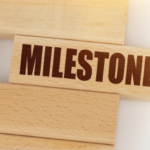I wonder if perhaps the NAS should be accompanied by more effort to curtail the huge costs of GME. I wonder, too, about the experimental basis of the mandated educational changes; perhaps I’m missing something, but I don’t see the scientific basis upon which to transform GME, despite the noble thoughts; pivotal elements (aspects of this are still evolving and being developed) were said to have been tested successfully in the Educational Innovation Project in internal medicine, but I, as a participant, didn’t perceive or experience it in that manner (and I don’t think my view of this is unique).1 I worry, too, that we have seen that other mandated and costly educational experiments failed to achieve the expected outcomes.7
How Should We Train Rheumatology Fellows?
So what should rheumatology do regarding the NAS? Permit me a brief reflection on formative experiences when I was a Duke resident in the era of Dr. Stead; these influence my thinking about how I hope rheumatology approaches this. Eugene A. Stead, Jr., MD, chair of Duke’s Department of Medicine during mid-20th century, was arguably the preeminent figure in American medicine in that century, with/after William Osler, MD.8 He was imaginative, innovative, creative, provocative, charismatic, brilliant, different, prophetic, and prescient. A few years ago, I had occasion to think about the future of medicine, and consulted Dr. Stead.9 It wasn’t complicated for him. “Change it,” he said (personal communication/conversation, September 3, 2004). “Don’t teach what we’re going to forget. Simplify the system. Eliminate all the formal teaching that has become so entrenched and is now unnecessary with ready availability of information stores. Let people learn by ‘apprenticeships’ with master clinicians. Assure quality and mastery by examination, direct observation of how they care for patients. How else? Then let them practice what they learned and what they are able. The resulting healthcare will be widely accessible, available, and affordable.”
I suspect he would not embrace the NAS. His view would ask if the astute clinician, particularly in rheumatology, needs a plethora of numbers, images, and tests to recognize a lupus flare, diagnose soft-tissue rheumatism, deal with uncomplicated chronic low back pain, or manage osteoarthritis. To assess trainees? Yes, it’s good to have a menu of tests, of evaluations or “instruments,” but could not the expert observer know if, when, and how to use them? And will not much of this change as our perceptions of and expectations for care and training change?


